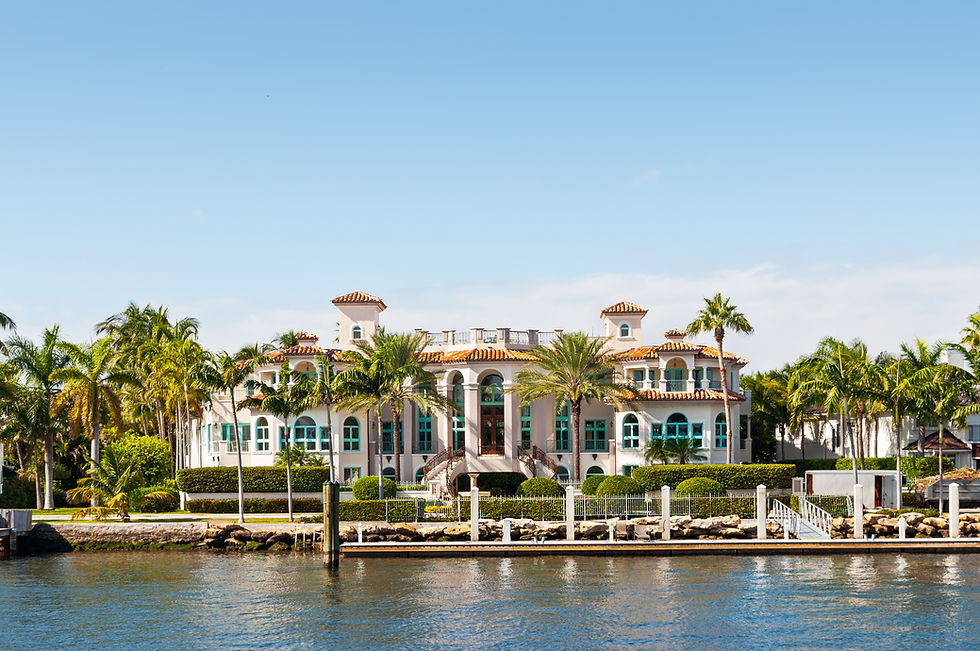Pros and Cons of Buying a Waterfront Property
- Zoritha Thompson
- Mar 25
- 2 min read

Owning a waterfront property is a dream for many, offering stunning views, direct water access, and a peaceful lifestyle. However, purchasing a home near water also comes with unique challenges. Before making a decision, consider these key pros and cons of buying a waterfront property.
Pros of Buying a Waterfront Property
1. Breathtaking Views and Serenity
Waterfront homes offer unmatched natural beauty and peaceful surroundings.
Waking up to ocean, lake, or river views can enhance your quality of life.
2. High Property Value and Investment Potential
Waterfront properties often appreciate faster than inland homes due to limited supply.
These homes can attract high-end buyers, increasing resale value over time.
3. Strong Rental and Vacation Appeal
High demand for short-term vacation rentals on platforms like Airbnb and VRBO.
Waterfront locations can generate higher rental income than standard properties.
4. Direct Water Access and Recreational Activities
Enjoy boating, fishing, kayaking, and swimming right from your backyard.
Many waterfront communities offer private docks and marinas for added convenience.
5. Health and Lifestyle Benefits
Living near water is linked to lower stress levels and improved well-being.
Fresh air and outdoor activities contribute to a healthier lifestyle.
Cons of Buying a Waterfront Property
1. Higher Purchase and Maintenance Costs
Waterfront homes typically cost significantly more than inland properties.
Ongoing maintenance due to saltwater corrosion, flooding risks, and humidity damage.
2. Increased Insurance Expenses
Many waterfront properties require flood insurance, which can be expensive.
Additional coverage may be needed for hurricanes, storms, and erosion damage.
3. Risk of Natural Disasters and Erosion
Coastal and riverfront properties are more susceptible to flooding, hurricanes, and rising sea levels.
Shoreline erosion can reduce land size and affect property stability over time.
4. Stricter Regulations and Zoning Laws
Many waterfront properties have building restrictions to protect the environment.
Permits may be required for docks, seawalls, or renovations, leading to extra costs and delays.
5. Seasonal Crowds and Privacy Concerns
Popular waterfront areas attract tourists and boaters, reducing privacy.
Noise levels may increase during peak vacation seasons.
Is a Waterfront Property Right for You?
Before investing, ask yourself:
Can you afford higher upfront and maintenance costs?
Are you comfortable with weather risks and insurance expenses?
Do you plan to use the property for personal enjoyment or rental income?
If the benefits outweigh the drawbacks and you’re financially prepared, a waterfront home can be a rewarding investment.
.jpg)
Comments